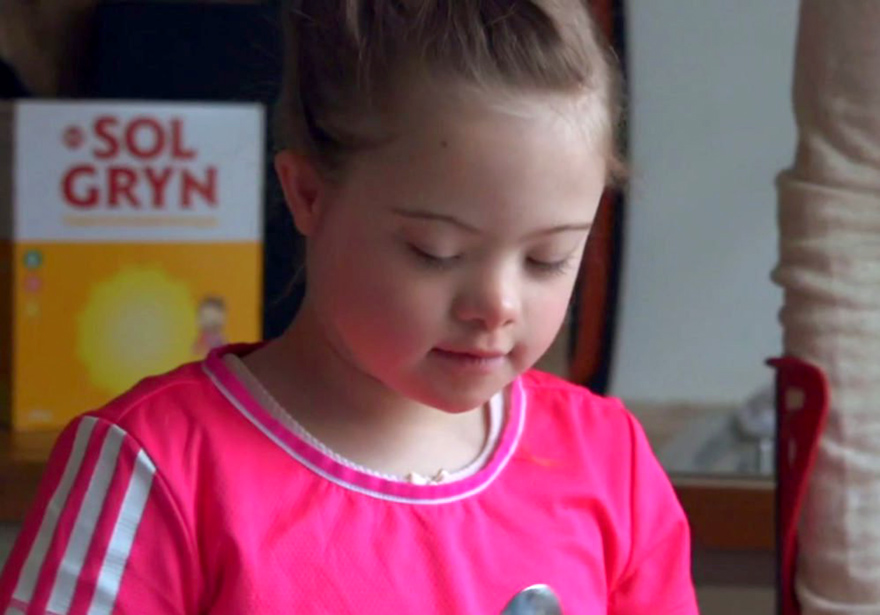Iceland Systematically Murders Anyone with Downs Syndrome to “Eradicate” It
 Europe has always had a history of murdering groups of innocent people they consider “inferior.”
Europe has always had a history of murdering groups of innocent people they consider “inferior.”
A casually worded CBS News article depicts a horrifying leftist reality.
CBS News reported earlier this week that Iceland is leading the world in “eradicating Down syndrome births.”
One might be forgiven for assuming that Iceland has developed an innovative treatment for the chromosomal disorder. It turns out Iceland’s solution is much simpler, and much more sinister: using prenatal testing and abortion to systematically exterminate children with Down syndrome. This isn’t progress; it’s eugenics.
The CBS article does little to accord this subject the moral gravity it deserves. “Other countries aren’t lagging too far behind in Down syndrome termination rates,” the authors note casually. CBS News’s tweet promoting the story read simply: “Iceland is on pace to virtually eliminate Down syndrome through abortion.”
But Iceland isn’t “eliminating Down syndrome” at all. It’s eliminating people. The callous tone of the piece makes selective abortion sound like a technological innovation rather than what it really is: the intentional targeting of “unfit” persons for total elimination.
Ninety percent of women in the United Kingdom who receive a positive Down-syndrome diagnosis choose to abort. In the U.S., that percentage falls somewhere between 67 and 90, according to a recent meta-study of Down-syndrome termination rates over the last few decades. In Europe as a whole, somewhere around 92 percent of babies diagnosed with Down syndrome are aborted. This targeting of individuals with Down syndrome is borne out not just in astronomical abortion rates, but in a cultural attitude that often regards them as less than human.
In France, for example, the State Council banned from the airwaves a video featuring children with Down syndrome talking about their happy lives. The advertisement was meant to comfort mothers who received a prenatal diagnosis and assure them that their children would have beautiful, largely normal lives. The ad was forbidden by the French government because the smiles of the children would “disturb the conscience of women who had lawfully made different personal life choices” — in other words, because seeing them happy would upset women who had aborted their Down syndrome children.
Meanwhile, prenatal testing is praised nearly universally for its ability to give women a full array of “options” for their pregnancies, but many women reportfeeling pressured by their doctors — whether to be tested in the first place or to choose abortion if the test reveals Down syndrome or other abnormalities. It is taken for granted in the medical community that no woman would carry a Down-syndrome pregnancy to term.
This pressure reveals the pervasive belief that selective abortion is somehow an actual health-care solution. Instead of seeking real treatment for the ailments that plague people with Down syndrome, or even finding potential cures, we have settled for a false vision of progress that kills people with a disorder rather than treating them.
A counselor at an Iceland hospital sees the issue even more starkly. “We don’t look at abortion as a murder,” she said. “We look at it as a thing that we ended. We ended a possible life that may have had a huge complication . . . preventing suffering for the child and for the family. And I think that is more right than seeing it as a murder — that’s so black and white. Life isn’t black and white. Life is grey.”
It is in this supposed gray area that the desire to promote health and well-being morphs into the insidious view that people with Down syndrome are better off dead — and that we will be a more advanced society for having relieved them of the burden of a “limited” life. Too many people today believe it is preferable, and indeed more humane, to murder children rather than allow them to suffer. But what life doesn’t have suffering?
Jerome Lejeune, the French geneticist who discovered the chromosomal basis for Down syndrome, once offered this perspective: “It cannot be denied that the price of these diseases is high — in suffering for the individual and in burdens for society. Not to mention what parents suffer! But we can assign a value to that price: It is precisely what a society must pay to remain fully human.”
The title of the CBS piece asks, “What kind of society do you want to live in?” The article’s implicit response seems to be, “One dedicated to eliminating abnormality and suffering by any means necessary.” But no admirable society eradicates suffering by eradicating those who suffer. To achieve true moral progress, we must reject the killing of the vulnerable and condemn any backwards society that promotes such a regime as a solution.
http://www.nationalreview.com/article/450509/down-syndrome-iceland-cbs-news-disturbing-report
